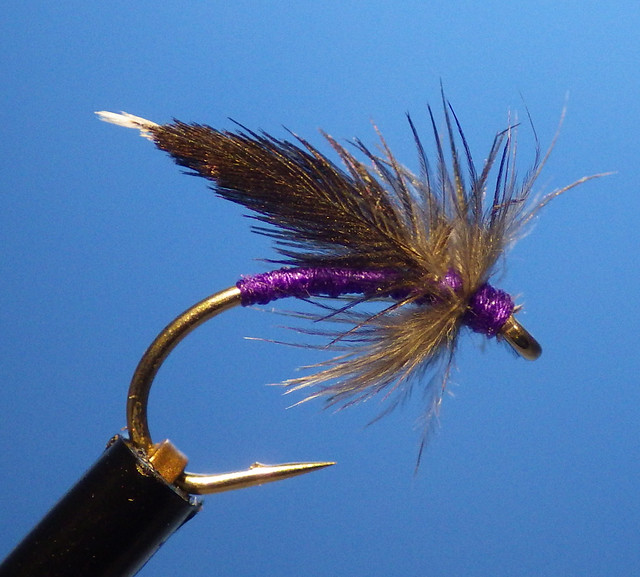Post
by joaniebo » Sat Mar 25, 2017 12:32 pm
From W. C. Stewart's book, “The Practical Angler or The Art of Trout-Fishing More Particularly Applied to Clear Water”:
"Dressing a spider is a much simpler operation than dressing a fly, and therefore it is better to begin with it. Having selected a thread of gut and a hook, the next thing is to choose a feather, which, to make a neat spider, must be so proportioned to the size of the hook that the legs of the spider, when dressed, will be about the length of the hook. Before commencing, bite the end of the gut between your teeth; this flattens and makes it broader in the point, which prevents it slipping, a thing very liable to occur with small flies. Next, take the hook firmly between the forefinger and thumb of your left hand, lay the gut along its shank, and with a well-waxed silk thread, commencing about the centre of the hook, whip it and the gut firmly together, till you come to the end of the shank, where form the head by a few turns of the thread. This done, take the feather, and laying it on with the root end towards the bend of the hook, wrap the silk three or four times round it, and then cut off the root end.
What remains to be done is the most critical part of the whole operation: still holding the hook between the forefinger and thumb of your left hand, take the thread, lay it along the centre of the inside of the feather, and with the forefinger and thumb of your right hand twirl them round together till the feather is rolled round the thread; and in this state wrap it round the hook, taking care that a sufficient number of the fibres stick out to represent the legs; to effect this it will sometimes be necessary to raise the fibres with a needle during the operation. Having carried the feather and thread down to where you commenced, wrap the silk three or four times round the end of the feather, and if there is any left cut it off, and finish with a succession of hitch-knots, or the common whip-fastening. If the legs of the spider when dressed are too long, there is no remedy for it; cutting injures rather than improves them. This is a very rough and simple mode of dressing a spider, and does not make it so neat as if the feather were put on by a pair of nippers, but it is more natural-looking, and much more durable, as the feather is fastened on by the thread the whole way down.”
 IMGP4136 by William Lovelace, on Flickr
IMGP4136 by William Lovelace, on Flickr IMGP4133 by William Lovelace, on Flickr
IMGP4133 by William Lovelace, on Flickr